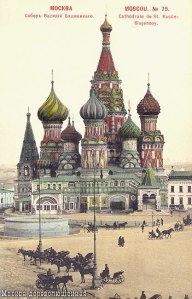 I just finished reading Anna Karenina by Leo Tolstoy. The novel becomes dramatic within the first few pages, though it takes 100 or so more before it arrives at the central drama of the book.
I just finished reading Anna Karenina by Leo Tolstoy. The novel becomes dramatic within the first few pages, though it takes 100 or so more before it arrives at the central drama of the book.
He includes so many details of the moral life and illustrates them well: habits, virtues and vices; passions, joy, sorrow, anger; jealousy, bitterness, regret; emotions quick and enduring, reasonable and ungrounded; friendships and family relations; men and women, children and parents; the effects of work and of play; faith and doubt, divine and human faith, superstition, ritual; the importance of place, home; thought, intellectual ambition, intellectual despair; contradiction among persons, contradiction within oneself, contradiction with society; death and birth; money, luxury, necessity; the tension between physical beauty and moral goodness.
But when I finished the book, I was disappointed by how it ended. It seems it could have ended the same way much sooner, and it wouldn’t have made a great difference. (I would contrast this with Middlemarch by George Eliot, where I don’t think the novel could have ended anywhere else than where it actually ended.) I could say more about his approach to religion, which I found quite true to reality at the beginning, but a bit superficial and moralizing by the end. Beyond anything, Tolstoy excels at showing the effects of sin, both internally and externally, and in the effect it has on others. Perhaps I did not like the later parts of the book because he does this too well.
[This book is #9 on my Classics List.]
I’ve just started reading War and Peace as my chosen Tolstoy for the Classics Challenge, and it too is extremely detailed. I shall certainly bear in mind your point about sin and it’s effect as I’m reading. I like your point about Middlemarch, I think every read is going to come back to that great book! I’m interested in what you think Dorothea’s faults are at the beginning of the book – I just see someone very young and naive?
LikeLiked by 1 person
(I just noticed now that you left the same question about Middlemarch on your blog, but I can answer it now…)
When I mentioned Dorothea’s faults, I put in parentheses “not even quite moral faults”, since I think you’re generally right: they do not extend much beyond youth and naivety. But wrapped up in these is also an immature desire for wisdom which, although an excellent thing in itself!, leads her to disregard the counsel of those around her and enter a very uncomfortable marriage situation. And by uncomfortable, I mean, pretty much everyone who reads Middlemarch seems to hope that her situation is alleviated by the death of her husband. (How wretched Eliot is for making us all wish this! Or perhaps we were already corrupt upon arriving at the novel…) All in all, I love the character of Dorothea, and I think her virtue is what makes the consequences of her imprudence so painful for the reader.
LikeLiked by 1 person
I had miss this post, -don’t know how or why. I agree with you. I don’t know why, -grin, books feel to me the way you describe them. I too think towards the end, AK became more moralizing and a Tolstoy started telling instead of showing.
I miss AK’s voice in the book that’s strangely titled after her. She is elusive through the novel. The end left me disoriented too. And TRUE, I too wanted Dorothea’s husband to die, -I sympathized with her too, and I wanted her to be freed from the consequences of her sins, since she was young, and she meant well. (I also placed some responsibility in her husband, -huh, crafty Eliot!
LikeLiked by 1 person
missed, arghhh. Forgive all spelling mistakes, part are mine, part it’s the not so smart smart phone.
LikeLike